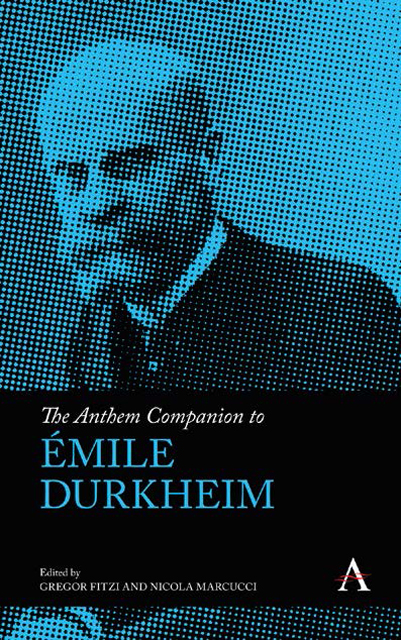Chapter 10 - Durkheim and the Industrial Remaking of the World Autonomy with and against Nature
Published online by Cambridge University Press: 09 December 2022
Summary
Introduction
The recent studies on Durkheim's work have allowed us to abandon the naive image of sociological positivism mostly based on the construction of a new method of analysis of social facts. His work appears instead as a systematic enquiry concerning the transformation of norms of conduct in democratizing industrial societies, in both their practical and ideal dimensions. In this respect, Durkheim's thought appears as having inherited socialist European philosophies from the nineteenth century and as having established a new disciplinary space defined by its contrast with philosophy, economy and psychology.
In this rediscovery of Durkheim thought, however, one aspect remained in the background: the relation between society and its natural environment. It is nonetheless evident that Durkheim's work is structured around concepts that refer less to mechanisms internal to a social (i.e. human) group than to the relations between these groups and what is external to them. In particular, this concerns the notions of collective representation, labour and religion. In each of these cases ‒ which represent three of the most important concepts for Durkheim – we are dealing with systems of practices and ideas whose function is to ensure the cohesion and efficacy of the arrangement connecting the group and its environment. The formation of the group as beyond a simple aggregation of individuals depends on the synchronization of the categories of understanding (i.e. collective representation), the coordination of the functions of subsistence and exchange (i.e. labour) and the existence of institutions capable of exercising authority on both the order of things and the obligations concerning persons (i.e. religion).
According to Durkheim, the social group does not pre-exist the modalities of its relationship to the environment. It is by coming into contact with these modalities that individuals confront the necessity of adopting common intellectual and practical patterns of behaviour. Yet in the twentieth-century history of social sciences, reflections on the boundaries of the natural and the social have generally turned away from the Durkheimian legacy. This is to a certain extent the common idea of Foucault and Latour: to grasp the collective existence of modern societies as a biosocial assemblage or as a product material abundance and subjective happiness are not directly proportional to each other, in the same way as the intensity of a behavioural response is not proportionate to that of the stimulus.
- Type
- Chapter
- Information
- The Anthem Companion to Émile Durkheim , pp. 221 - 232Publisher: Anthem PressPrint publication year: 2022

